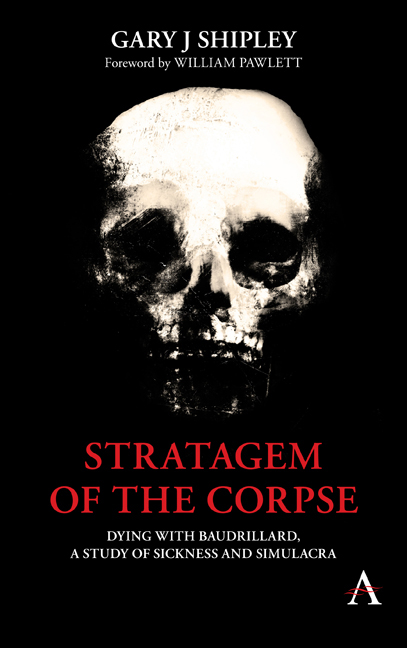Book contents
- Frontmatter
- Dedication
- Contents
- Acknowledgements
- Foreword by Pawletts William
- Introduction
- Chapter 1 On Decay and Other Synthetics
- Chapter 2 Stratagem of the Corpse
- Chapter 3 A Bleak Non-History of History
- Chapter 4 The Hyperactivity of Objects
- Chapter 5 The Unnamable Catastrophe
- Chapter 6 A Cure for Vertigo
- Chapter 7 Chance and the Temporality of Death
- Chapter 8 The Possibility of Nihilism
- Chapter 9 Smell-O-Vision: The Murder Show
- Chapter 10 The Evil Death
- Chapter 11 False Confessions and the Madness of Death: Making Death Speak
- Chapter 12 Black Light: Nigredo and Catastrophe
- Appendix 1 Whiteout: Spatiotemporal Interstices, Necropresence and the Immortality of Now
- Appendix 2 Pure Dreaming: Radicalized and Vermiculated Thought, or Death as an Earworm
- Appendix 3 The Non-Existence of the Scream
- Index
Chapter 9 - Smell-O-Vision: The Murder Show
Published online by Cambridge University Press: 20 February 2020
- Frontmatter
- Dedication
- Contents
- Acknowledgements
- Foreword by Pawletts William
- Introduction
- Chapter 1 On Decay and Other Synthetics
- Chapter 2 Stratagem of the Corpse
- Chapter 3 A Bleak Non-History of History
- Chapter 4 The Hyperactivity of Objects
- Chapter 5 The Unnamable Catastrophe
- Chapter 6 A Cure for Vertigo
- Chapter 7 Chance and the Temporality of Death
- Chapter 8 The Possibility of Nihilism
- Chapter 9 Smell-O-Vision: The Murder Show
- Chapter 10 The Evil Death
- Chapter 11 False Confessions and the Madness of Death: Making Death Speak
- Chapter 12 Black Light: Nigredo and Catastrophe
- Appendix 1 Whiteout: Spatiotemporal Interstices, Necropresence and the Immortality of Now
- Appendix 2 Pure Dreaming: Radicalized and Vermiculated Thought, or Death as an Earworm
- Appendix 3 The Non-Existence of the Scream
- Index
Summary
What will soon follow logically, are the televised snuff movies and bodily harm. Death should logically enter the screen as an experimental event. Not at all as a sacrifice – at the same time as they try to make it disappear technologically, death will reappear on the screen as an extreme experience.
The victim is an inconvenience. As we reheat the past, as we would food to kill any bacteria, to form our future, there's the inevitable impulse to want some parts warmer than others. The victim rots quicker than the victimizer, and the reapplication and maintaining of heat releases the stench of the wronged over that of the wrongdoer. And the stench here is the stench of innocence, the smell of a past that we’d really rather only see, while acknowledging the need to smell, to experience, to eventually die there with them. Remembering as deterrence, when ‘forgetting is still too dangerous’, is primarily concerned with identifying the perpetrators, and not the victims, regardless of how the latter may have been singled out. The problem is that the victim is always chosen in these instances, and the choosing always refers back not to the consequence of that choice but to the artificiality of the structures of the choice itself. It is the artifice that we are so desperate to recreate, in all its compelling and convoluted remodelling of what we take to be human, while the dead become a supplementary aroma that earths the electricity of thought in the pervading shame of the real. The stench makes our eyes water, but the vision appals and sickens and intrigues and shows itself as something we all now recognize as a horror narrative, as cinematic, as imagination played out by men and women who did not know they were acting, but who thought their involvement had much less reality, that what was happening was just life, just the standard digestion of history, thinking they too would one day be allowed to die, or else psychosis would perhaps rid them of the smell of ever having arrived on the planet.
One hope for the Holocaust never being repeated is its never having stopped. To allow it to end is to admit some final understanding, and we cannot permit ourselves to understand. All we can do is repeat its affront to our health in many tiny measured doses, like a vaccine.
- Type
- Chapter
- Information
- Stratagem of the CorpseDying with Baudrillard, a Study of Sickness and Simulacra, pp. 111 - 120Publisher: Anthem PressPrint publication year: 2020



